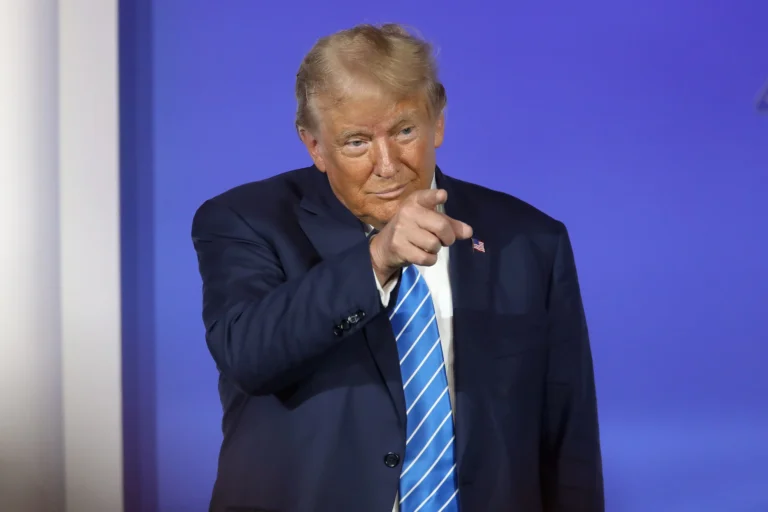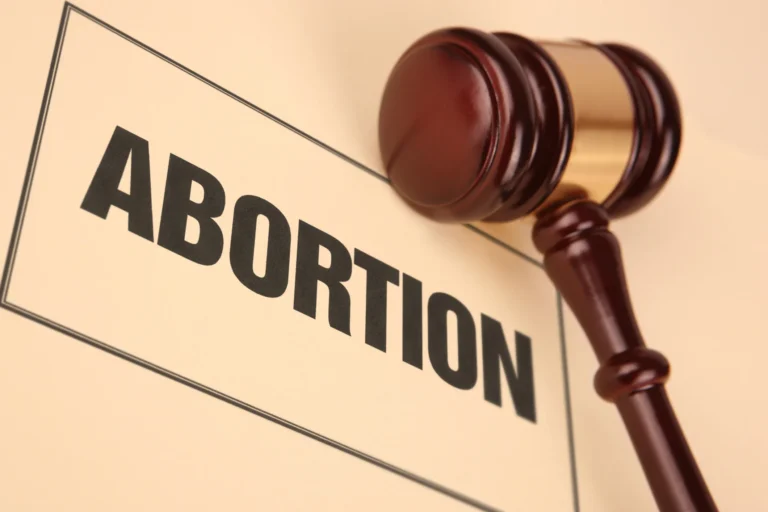Although US State Department officials say they’re against coercive population control in China, they have led the effort to deny U.S. asylum to Chinese who say they fled forced abortion and sterilization.
Diplomats apparently have won their fight within the-Clinton Administration, but they could still lose a separate battle with Congress on the issue.
When he was asked about China’s coercive population control in June of 1993, State Department official, Timothy Wirth, said the Clinton Administration had the position “that-any-civilized-human-being-has…that kind of physical coercion is absolutely abhorrent to the administration.”
Yet internal government documents — uncovered by a major asylum lawsuit on behalf of Chinese detained here in the U.S. show that State Department officials have tried to bar U.S. asylum to most Chinese who say they have fled coercive population control. Wirth, who is Under Secretary for Global Affairs, a strong advocate of population control, and alternate chair for the U.S. delegation traveling to the Fourth World Women‘s Conference in Beijing, has been a key leader of the effort to deny asylum.
National Security Council memo
According to a National Security Council memo, 25 January 1994, Wirth “argues [that] any definition of those entitled to protection provides a road-map to fraudulent claims, obstructs rapid deportation of illegal immigrants, and serves as a magnet for additional illegal immigration? The memo added: “Tim also argues we can support an apparently harsh return policy by publicly underscoring our opposition to China’s population policy but candidly admitting we cannot handle it through immigration.”
The memo said Wirth favored a policy of administrative discretion by the Immigration and Naturalization Service (INS), which is part of the Justice Department. We [should] decline to deport Chinese “in the most extreme” cases, e.g., “a person who faces imminent forced abortion or sterilization if returned.” That standard apparently would exclude those who have already experienced forced abortion or sterilization as well as many others who fear it, but cannot prove that it’s imminent.
The National Security Council document said that President Clinton “has indicated that no individual with a credible fear of forced sterilization/abortion should be returned.” But it failed to define “credible.” The memo suggested that protecting the same categories of Chinese protected by the Bush administration would avoid criticism that President Clinton “is more callous than Bush on China human rights.” (In a 1990 executive order., President Bush had provided “enhanced consideration” of asylum claims based on forced abortion or sterilization.)
On Feb. 18, 1994, in a letter to a National Security Council staff member, Samuel (Sandy) Berger, Wirth proposed weakening a Senate amendment that he said “would put into law the substance of the Bush Administration policy that encouraged large numbers of fraudulent asylum claims.” He claimed that “the majority of the Chinese who are coming here illegally — including the 1,200 now in INS detention — are principally economic migrants.”
Improper White House influence
The 1,200 detainees Wirth referred to included many from the Golden Venture, a smuggling ship that ran aground off the New York coast two years ago. Some of the nearly 300 Golden Venture passengers have been granted asylum on grounds of political or religious persecution and some have been returned to China. Many others are taking part in a suit, Yang You Yi v. Reno, alleging improper White House influence on their asylum cases. The lawsuit has forced release of many government documents.
Attorneys for the Golden Venture passengers say most of their clients either have already suffered from forced sterilization or abortion — or else have good reason to fear it. State Department documents intended for the public or for immigration judges de-emphasize direct physical coercion, although they acknowledge pressures on Chinese couples to have no more than one or two children.
State Department accuracy challenged
John Aird, a retired Census Bureau expert on China and a major critic of coercive population control there, has challenged the accuracy of State Department documents on the issue. In testimony before congress, Aird said there are indications “that compulsion is increasing, not moderating” in China.
Some internal State Department documents appear to accept Chinese government statements at face value and to accept Chinese punishment of migrants forced back to China. Thus a January 1994, cable from the U.S. consulate in Guangzhou to the U.S. embassy in Beijing criticized a Hong Kong newspaper story on such punishment: “Since last July, Fujian [province] officials have publicly stated that repeat offenders would be sent to labor reform camps and fined. Surprise on the part of offenders and their families that this should now be happening is disingenuous. The same is true with fines.”
The documents suggest that American diplomats were well aware that draconian fines (up to five times a person’s annual income — or more) were imposed on returnees and that some who couldn‘t pay the fines were kept in prison. Yet a March, 1994, cable from the embassy in Beijing to the State Department in Washington suggested this statement for a world refugee report: “…Repatriated Chinese have been well treated. Most are made to pay a fine, (designed as a deterrent), said to cover the costs of return and resettlement.”
The documents reveal consistent State Department pressure on China to prevent the smuggling of Chinese to America. Department officials often refer to — and news reports confirm — smuggling by “criminal syndicates” who charge high fees which migrants must spend years paying off if they reach the U.S. Many illegal migrants work in sweatshops to pay the fees, and some are beaten up by “enforcers” if they don’t pay. An August 1993 State Department cable noted that the U.S. “recognizes the right of people to leave any country.” It tried to reconcile this with its anti-smuggling pressures on the Chinese government by declaring: “It is not a U.S. goal to prevent the act of departure for its own sake, but rather to prevent unlawful entry of economic migrants into the United States.” While the U.S. government was pressing China to crack down on smugglers, China was pressing the U.S. not to give asylum to any illegal Chinese migrants. In November, 1993, the U.S. embassy in Beijing reported to State that the Chinese “would like us to agree to repatriate everyone on a particular ship or in a single group. In other words, no successful claims for refugee status. (This is something, of course, we cannot do.)”
U.S. Embassy interpretation
In January, 1994, the U.S. sent 118 Chinese back to China. In February, the embassy in Beijing cabled Washington that Chinese consular official Li Ping had pointed out, more than once, that permitting “some” migrants from each group to remain in the U.S. undermines “all other efforts” and “causes problems at higher levels of the Chinese government.”
Chinese and U.S. officials held negotiations on smuggling and repatriation issues in Beijing on April 14–15, 1994. The talks were summarized in a long May cable from the U.S. embassy to Washington. The cable said that Chinese official, Dai Changshi, complained about migrants “who lied to US authorities about suffering political persecution or a repressive one-child policy.
Immigration official, James Puleo, told Dai that both the Justice and State Departments had asked the Clinton Administration to “reconsider previous administrations’ policies regarding China’s one-child policies regarding China’s one-child policy.” According to the cable, State Department official, Diane Kelly, asked that [Chinese] consular officers become directly involved in the citizenship verification process. “Working together,” she said, “we can better establish identities before deportation.” Immigration official, Joan Higgins, assured the Chinese that the U.S. would give them, in Chinese characters, the “identity, residence, and other desired data” on each returnee — as well as a photograph.
The cable also reported that Chinese “who arrived in the U.S. by boat will be clearly designated on the list.” James Puleo said the INS would try to be sure that each group of illegal aliens, “especially those that are intercepted at sea, will be repatriated as a single group.”
“Matter of Chang” decision
The State and INS negotiators were able to give such assurances partly because the Clinton Justice Department had decided to support a 1989 “Matter of Chang” decision by the Board of Immigration Appeals — rather than President Bush’s executive order on the issue. The Matter of Chang decision makes it extremely difficult to win U.S. asylum because of coerced birth control.
Rep. Christopher Smith (R-NJ.) and others are pressing legislation to provide political asylum to people who flee forced abortion or sterilization. Their asylum provision was included in a foreign policy bill recently passed by the House, and it’s in a bill passed by the Senate Foreign Relations Committee.
Mary Meehan is a journalist for the Catholic Standard. She is well-versed in public policy issues. An earlier version of this article was published in the Catholic Standard.








